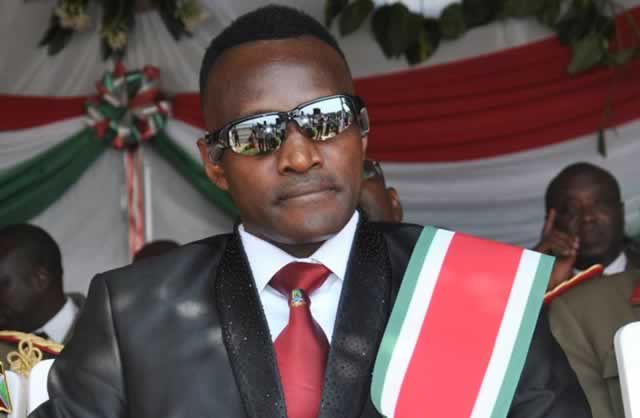Lawyer loses exorbitant fees case
Mashudu Netsianda Senior Court Reporter
BULAWAYO High Court judge Justice Martin Makonese has dismissed with costs an application by prominent lawyer Ndabezinhle Mazibuko who had filed a lawsuit against Christian Brothers College (CBC) challenging its exorbitant fees and failure to provide textbooks and stationery to pupils.
Mazibuko, who has a son doing A-Level at the affluent school in Bulawayo’s Matsheumhlope suburb, accused CBC of increasing fees willy-nilly without the approval of the National Incomes and Pricing Commission and the Ministry of Primary and Secondary Education.
In his court application citing CBC, the National Incomes and Pricing Commission and the Ministry of Primary and Secondary Education as respondents, Mazibuko through his lawyers, Calderwood, Bryce Hendrie and Partners, sought an order compelling the school to provide pupils with textbooks to justify its “exorbitant” fees.
He said 80 percent of the school’s budget went towards paying teachers’ salaries and allowances at the expense of his son’s education, arguing that it was a violation of children’s right to education.
Mazibuko said he was spending more than $400 on textbooks and stationery.
He further argued that other prestigious schools in the city were providing textbooks from the money paid in fees and queried why CBC was the odd one out.
In his ruling, Justice Makonese said although Mazibuko’s arguments make good and practical common sense to the extent that an elite school charging high fees should necessarily provide textbooks, the courts would not interfere in private contractual relationship between the applicant and the school.
“The parents are undoubtedly incurring additional costs by buying textbooks for their children after paying high school fees. The difficulty is that there exists a contractual relationship between Mazibuko and CBC and the applicant, who is not a layman, signed a written contract with specific terms and conditions,” said Justice Makonese.
He said in terms of the written contract, Mazibuko acknowledges that he will be bound by such rules and regulations as may be put in place by the school or the headmaster from time to time.
“It’s a settled principle that the courts will not interfere in private contractual relationships. Such relationships include the relationship between a voluntary association and its members, which relationship is based on contract. In this case, the applicant and the first respondent (CBC) entered into a contractual relationship, which the courts will be reluctant to interfere with, in the absence of any alleged breach of rules of natural justice or any perceived conduct which is ultra vires,” said the judge.
In dismissing the application, Justice Makonese said given that Mazibuko had not alleged any breach of any rules of natural justice and the fact that the case involves a private contractual relationship, there was no basis for the court to interfere.
“It’s my view that the applicant failed to show that there is any legal basis for the court to interfere in a private contractual relationship. There is no good ground for the court to review the school’s long standing policies on school fees and its relationship with parents. I’ve found that there can be no basis to imply a tacit term into the contract, especially where such a tacit term would be contradicted by express terms of the contract. In the result, the application is dismissed with costs,” ruled Justice Makonese.
The judge said the right to education as envisaged in the Education Act and under section 85 (1) of the Constitution of Zimbabwe Amendment (No.20) Act, 2013 does not relate to provision of textbooks and stationery.
“The right adverted to is the right to free basic education at elementary level which the government of Zimbabwe has an obligation to provide,” said Justice Makonese.
In his founding affidavit, Mazibuko claimed that he raised the issue in 2011 at a parents meeting when his other son was still at the school but nothing has been done, despite the majority of parents agreeing with him.
“What baffled me and really gets under my skin is that we are paying such a huge amount in fees yet the first respondent doesn’t provide textbooks and stationery to our children,” he said.
Mazibuko also sought an order to compel the school to give a term’s notice to a parent of a child who would have defaulted on paying fees.
Justice Makonese ruled that there was no live controversy regarding the exclusion of pupils from school by reason of non-payment of school fees because Mazibuko confirmed during the hearing that his child was up to date with school fees.
CBC through its lawyers, Webb, Low and Barry, argued that Mazibuko had not shown that he is an injured party in respect of the relief sought in the draft order.
“It’s submitted on behalf of the first respondent that no violation of any right of learners has been established and therefore there is no basis for the interference with the policies of respondent. Respondent submits that there is no live or existing controversy with regard to the alleged policy of exclusion of learners who haven’t paid school fees and the court shouldn’t be called on to pronounce upon abstract propositions of law that would amount to advisory opinions,” argued the CBC lawyers.











Comments